“If you do nothing else today, go into your 'working' folder, open that old track and just hit Export”: Want to get those unfinished projects finally finished? Let us help
Completing a track in your DAW can be a surprisingly difficult task, but in this feature we'll guide you through the final stages

With our ongoing 'Start Here' features, our aim is to introduce you to the amazing world of music production, and how it can help you realise your music-making ambitions, no matter what your skills and experience in music theory or playing. Recently we've guided you through the DAW itself, how to start a track, and how to use loops to create the main body of a song.
Now we're going to complete the main part of the production process by showing you how to finish a track. It's can be a surprisingly difficult process, but not if you follow this guide!
DAWs are brilliant at helping you turn ideas into tunes, of that there is no doubt. But they don't 'tell' you when your song is complete, so that part of the music production process is up to you.
But how do you know when your song is complete? In this feature, we'll cover the main aspects of finishing a tune in a DAW, figure out how we know whether the mix is right, and offer some tips on mastering a piece of music and the processes leading up to that glorious final moment.
So sit back and get ready to turn some of those ideas you've had kicking around your hard drive into living, breathing tunes!
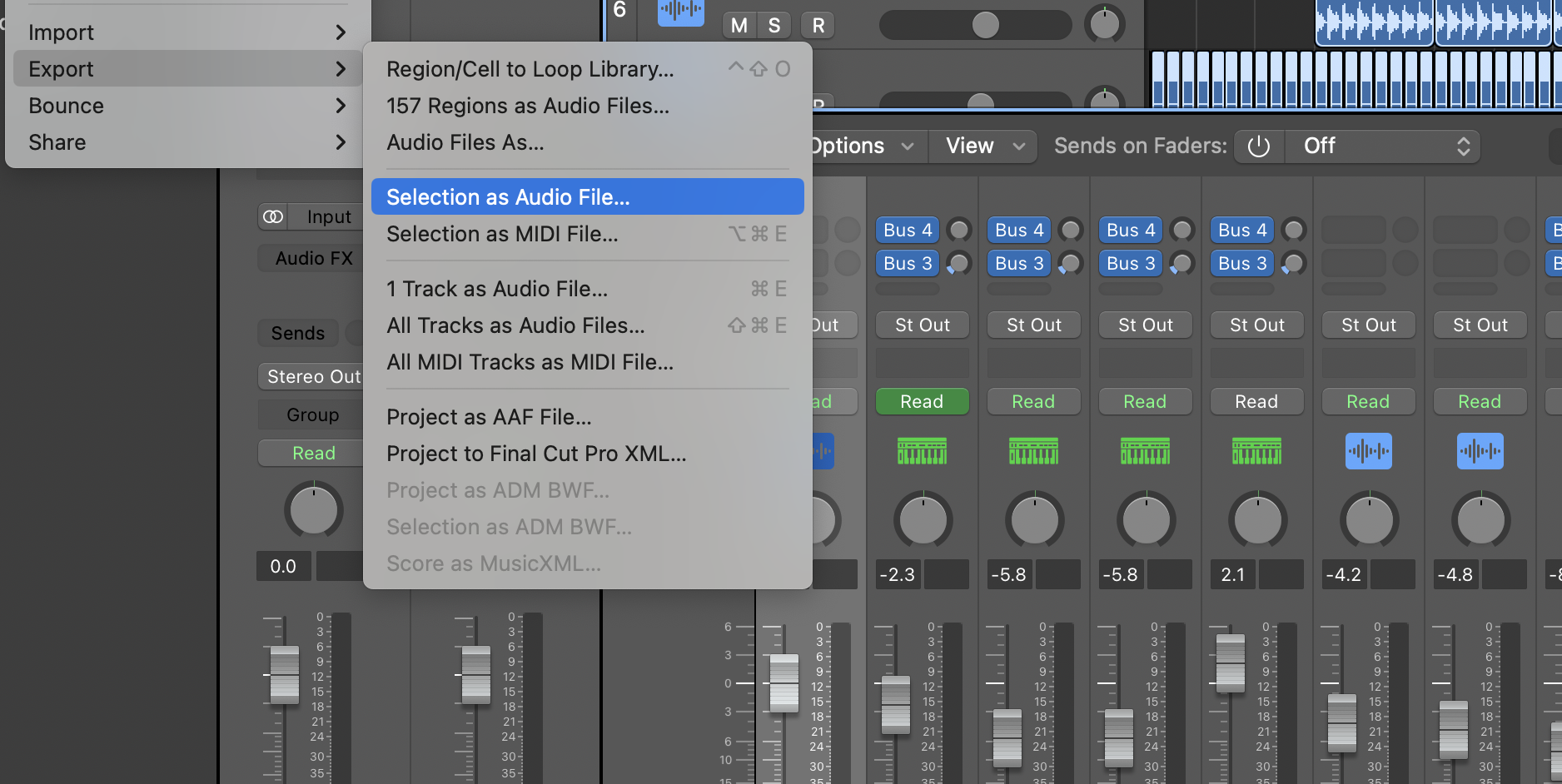
What do we mean by 'finishing' a track?
What do we mean by 'finishing' a track?
And that really is the question. How do you know when a tune is complete? On a very basic, human level, it's when you are happy enough to press the 'Export Audio' button in your DAW and for someone else to hear the results.
In truth, though, that could be any time after getting some ideas together as loops - perhaps to play to a collaborator to help kick-start more ideas - to having a complete arrangement, a perfectly mixed and mastered song ready to upload to any of the multiple streaming services that are available.
At either end of these stages (looped ideas to complete song) it is obviously up to you whether you think the song is complete or the ideas ready to be heard.
It's quite a subjective step, then, but luckily there are some technical processes and levels that you can aim for, that can help you know whether your music is ready to be released to the wild.
Most, if not all, of these are covered within the DAW and the mixing and mastering processes.
How do we get this track finished?
How do we get this track finished?
The main concern with the final mix is specifically about making sure all of the instrument and vocal parts in your song can be heard and are pulling their weight, and are not too prominent or clipping - turning the channel red as they play.
It's also about making sure that certain parts in your song don't clash - the bass guitar and certain parts of the kick drum, for example - or that the song parts are spread well across the stereo soundstage (or surround stage if you are lucky enough to work in that environment).
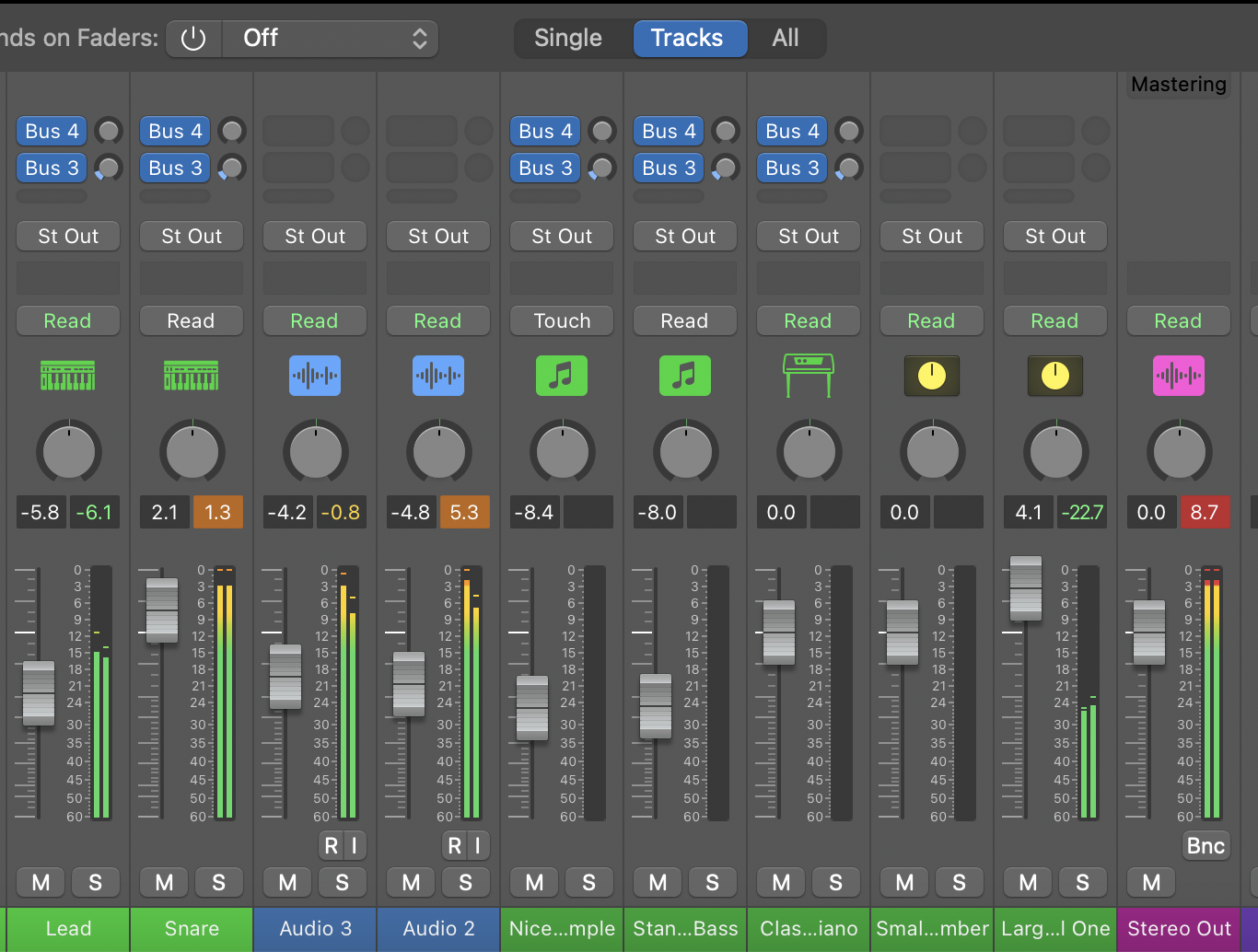
Overall, the mix is about asking yourself whether a certain instrument is contributing to the whole, or is surplus to requirements, or whether there are gaps in the arrangement and dynamic range that need plugging with further instrumentation.
Once you have a mix that fills the soundstage, both in terms of stereo space and frequency range (so you have full lows and smooth high frequencies) you will have taken a big step towards finishing the song.
When you are happy with your mix, one further process should be addressed before you can say your song is finished, and that is mastering.
Want all the hottest music and gear news, reviews, deals, features and more, direct to your inbox? Sign up here.
We'll have a complete guide to mastering as a separate Start Here soon, but basically the process takes your mix and elevates it to a professional-sounding level using a process of gentle compression (to make the mix more even), EQ (often to add gentle body to the lows and sheen to the highs), and limiting (to add to the perceived loudness).
To be honest, the mastering process used to be something of a dark art, practiced (literally) by people wearing white coats in mastering studios, but now anyone can get involved using software.
As a DAW user, the mastering process is something you can (and perhaps should) experiment with and there are a couple of approaches.
The first is to reference your mix against some released music in the genre you are working within, and this could be as simple as loading in your target track as an audio file onto an audio track in your DAW. Play your own mix next to it and -notice anything different?
It's likely the released track will sound more dynamic, louder and have a certain 'sparkle', and that's because it's been mastered using the processes above.
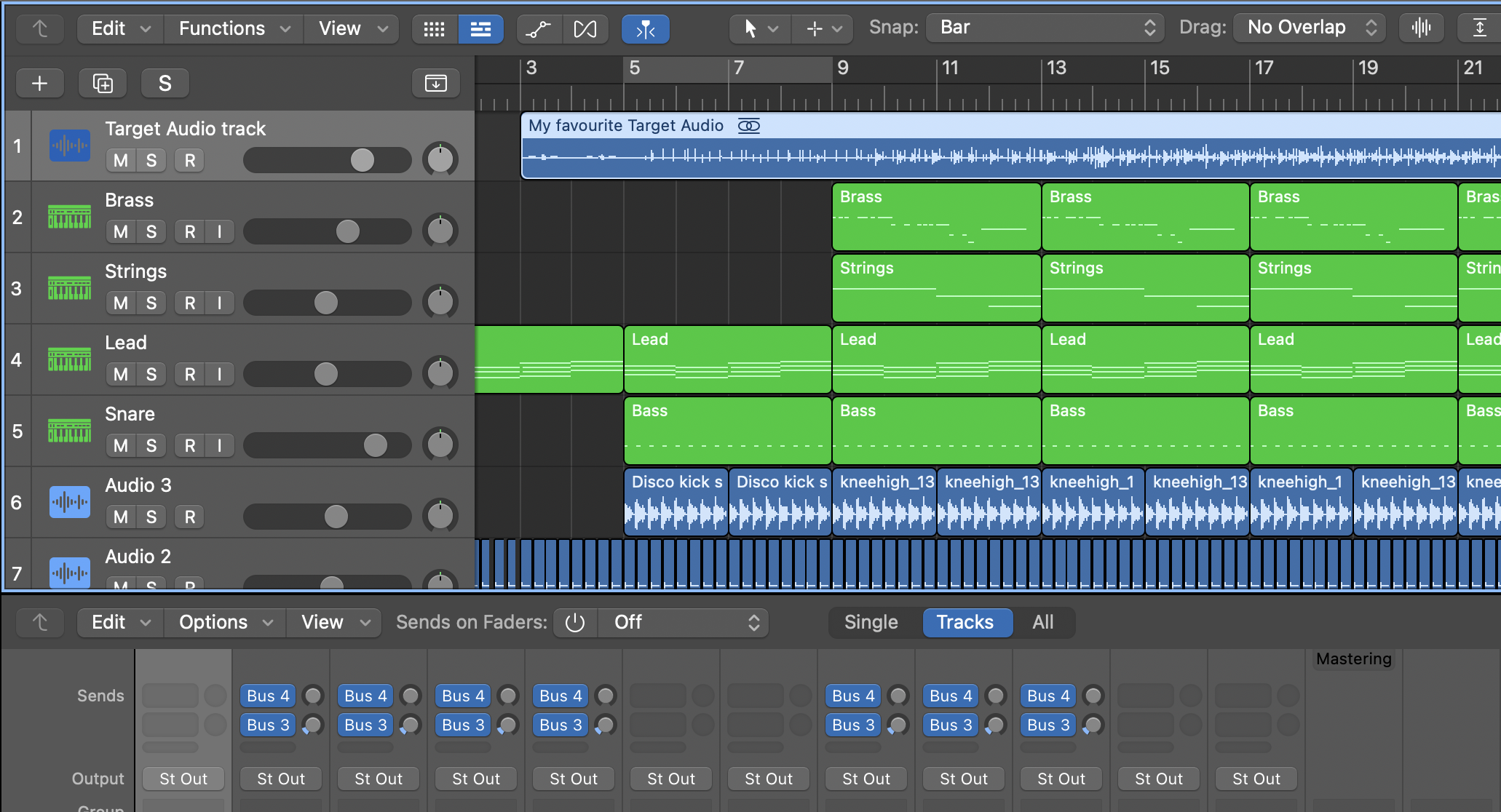
You can apply some of those processes to your whole mix to raise its sonic character to your target audio, and we have several guides on MusicRadar that can help (see our further reading section at the end of this article).
The second approach to mastering (and indeed mixing) is to use an increasing number of AI-based plugins to do the heavy lifting for you.
As far as we know, even Artificial Intelligence can't tell you if you have finished your song (yet) but what it can do is help you mix and master your music to a point where you are ready to export.
AI has really made an impact in the world of music production including composition, chord sequencing and beat-making. But it's the worlds of mixing and mastering where it has made the biggest inroads, and there are plenty of options to give your overall mix a professional edge at the touch of a button.
Just a few of these include iZotope's Neutron for mixing and Ozone for mastering; Oeksound's Bloom for making any track and mix sound good; and the LANDR platform is a solid option for mastering.
Other plugins like Sonible's Smart:EQ, Focusrite's suite of AI FAST plugins, and Oeksound's Soothe which makes tweaking parts of a mix very easy indeed. Basically there are a lot of plugins out there to help you get to the stage where to are ready to press Export!
The final process
Once you are happy with the mix and the overall mastered sound, the actual process of finishing a track is very straightforward.
Your DAW will have several Export options allowing you to save your song as an audio file (usually in .aiff or .wav formats).
You can often export certain tracks or groups of tracks on their own, or even just sections of your song, but in this instance you want to 'bounce' the entire song to a stereo file in your chosen format.
Your DAW will do the rest, churn through your arrangement and, hey presto, your song is finished!
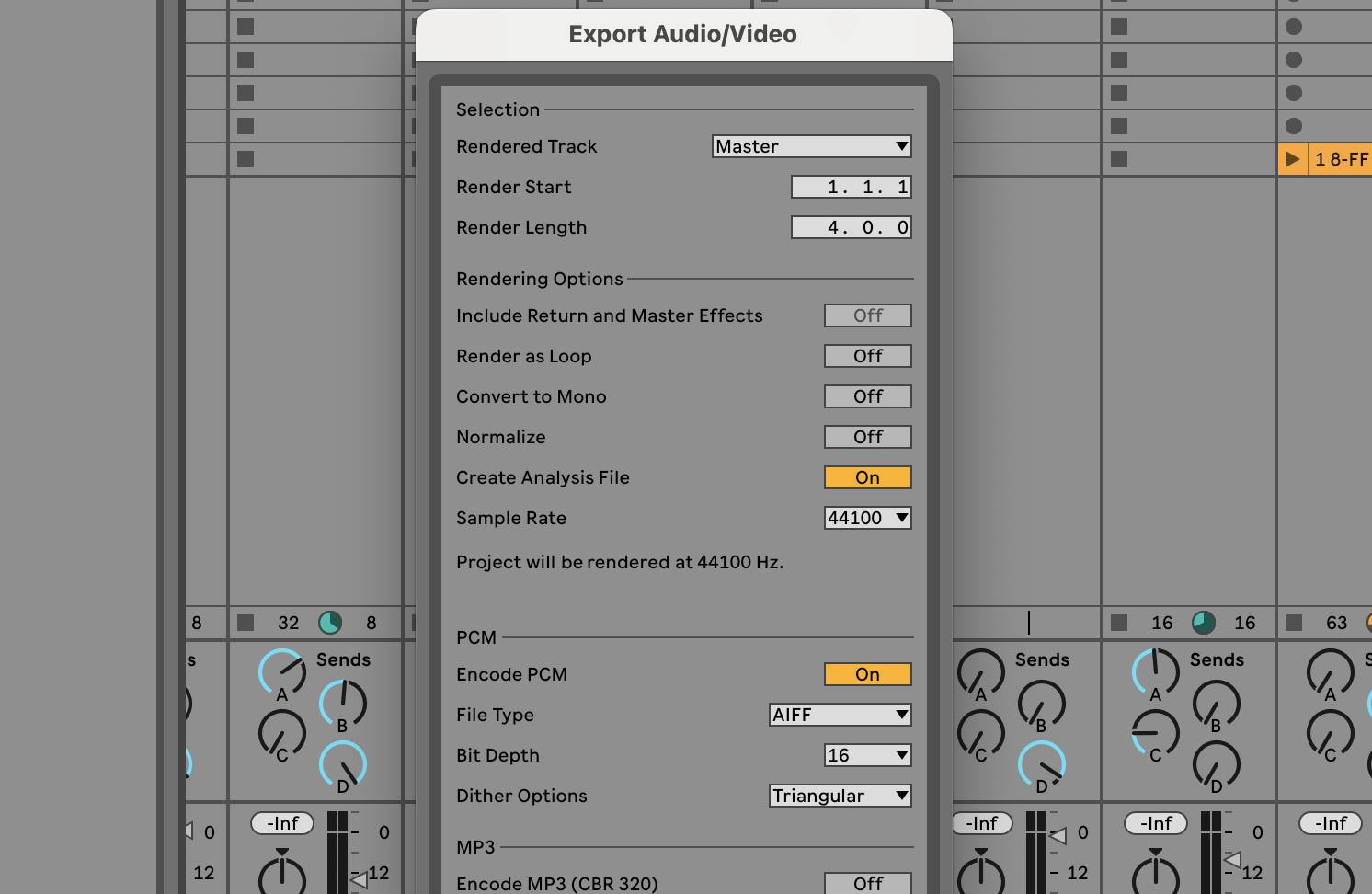
10 key track finishing points
10 key track finishing points
1. Take a break. Possibly the best advice we can give when you are approaching the end of a long production session and (hopefully) the end of a song is to take a break. Take between a couple of hours and a couple of days away from your mix and then return to it with fresh ears. It's very easy to get bogged down in the end process and end up spinning around and around with ideas and tweaking until you are doing more harm than good. Take a break to avoid this!
2. There's no rush. Don't feel pressured to press that 'Export audio' button. Unless you are working to a deadline to get a piece of music completed (in which case, lucky you) there really is no rush to finish a mix and get it out to the world. Believe us, the world has enough music to be getting on with and it can wait. Take your time, get your mix perfect, your mastered track up to level and don't make it an hour-long arrangement - the world doesn't have enough hard drive space.
3. But don't leave it too long. Yes, the opposite to the above can be true - we know some people (not us, of course) who have hard drives full of song ideas and these can become like albatrosses, constantly nagging at you to be finished as you open up your DAW to start something new. So try not to leave ideas around in your virtual environment like half-finished meals at you local cafe - they might start to fester!
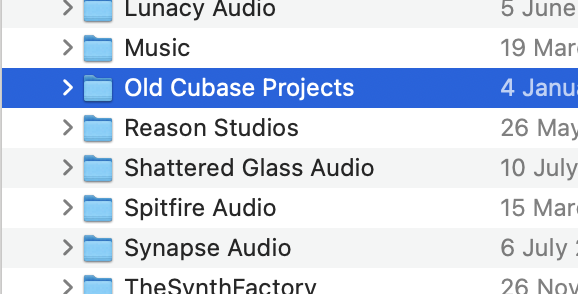
4. Taking the above point further, if you find yourself with more song ideas on your hard drive than completed tunes, put some time aside - even if it's just an hour - to revisit them once every few months. It's stretching the 'take a break' philosophy but having spent months away from these initial looped ideas will give you a totally new perspective. You might end up thinking 'what on earth was I doing?', in which case the delete option delivers a surprising amount of pleasure. But if it's still a 'well that sounds good' then the chances are, that is an idea worth finishing.
5. Play your mix on multiple playback systems. This is old but still good advice for anyone with a completed audio track. You get a completely different take on it if you play it in different environments: the car, a Bluetooth system, through headphones, whatever. It might be that you discover issues with the mix, the master, even the whole concept, but the more systems you can get it sounding great on, the more confidence you can have that your track is finished.
6. And use other people! As well as auditioning your track on different systems, how about actually playing it to some real human beings too? Yes this can be very daunting - making music is a very personal thing - but getting positive and constructive criticism from your peers can also help spur you on, maybe helping to turn that 4-track EP you had planned into a full 10-track album.
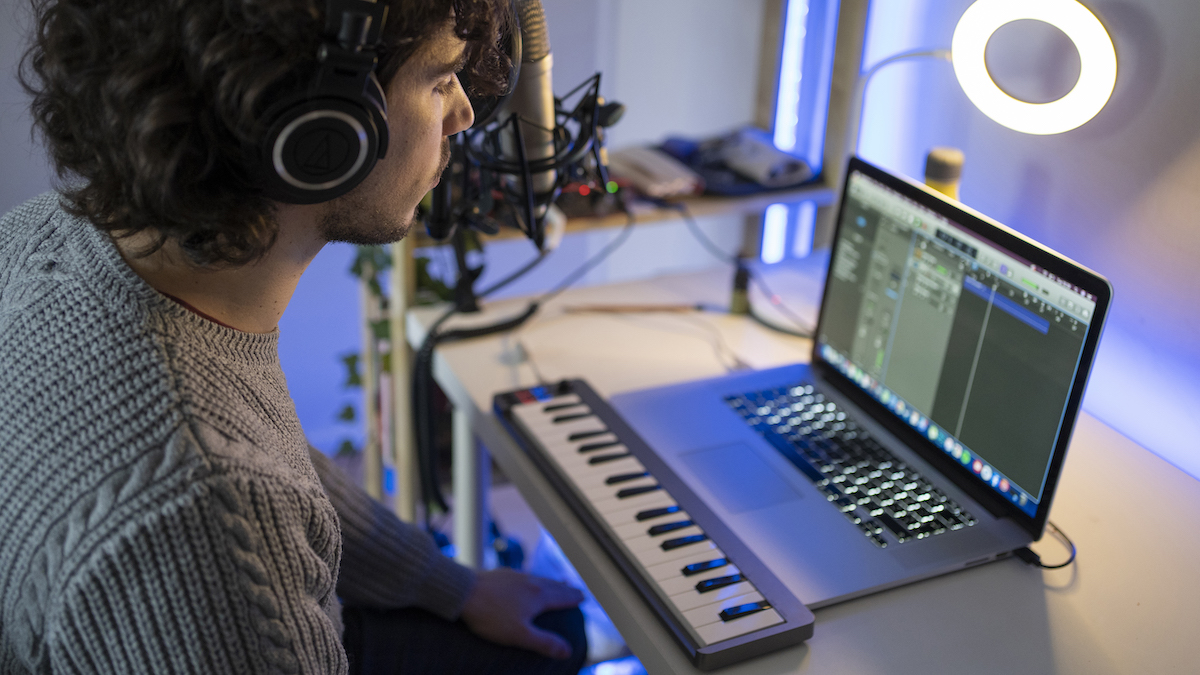
7. Is it ever really finished? We've interviewed many producers who say that a song is never finished and while we totally get that point, we believe you have to put a marker in the sand and say 'this song is ready'. Today's DAWs make it almost too easy to revisit ideas and tweak away and, honestly, life it too short. Unless you hear a glaring mistake you made in that mix you did a year ago, leave it, get on with something new, get on with your life!
8. And one way to get on with your life is to accept that your music won't be perfect. If you are a perfectionist then DAW music production makes it all too easy for you to tweak, tweak and then tweak some more but a more philosophical approach could be to accept that it will never be perfect and move on; maybe even go one further and flaunt that imperfection. Yes, it probably goes against what your parents told you about always doing your best, but they've never been faced with multiple DAW options to endlessly mix and master music, so what do they know?
9. Make finishing part of the plan. That probably sounds a lot easier to say than do, but if you, say, set a deadline to finish a piece of music then you are more likely to get it completed, especially if you have other things to do after that deadline. Or maybe make this particular piece of music part of an album project, plan it as part of something bigger and then the pressure to finish it is not as great – it just becomes part of a bigger picture.
10. But do finish it. Sometimes just bouncing your tune down to a stereo mix can give you closure, the psychological feeling of having completed something, so if you do nothing else today, go into your 'working' folder, open that festering old track you started in 2020 during COVID, and press Export. You never know…
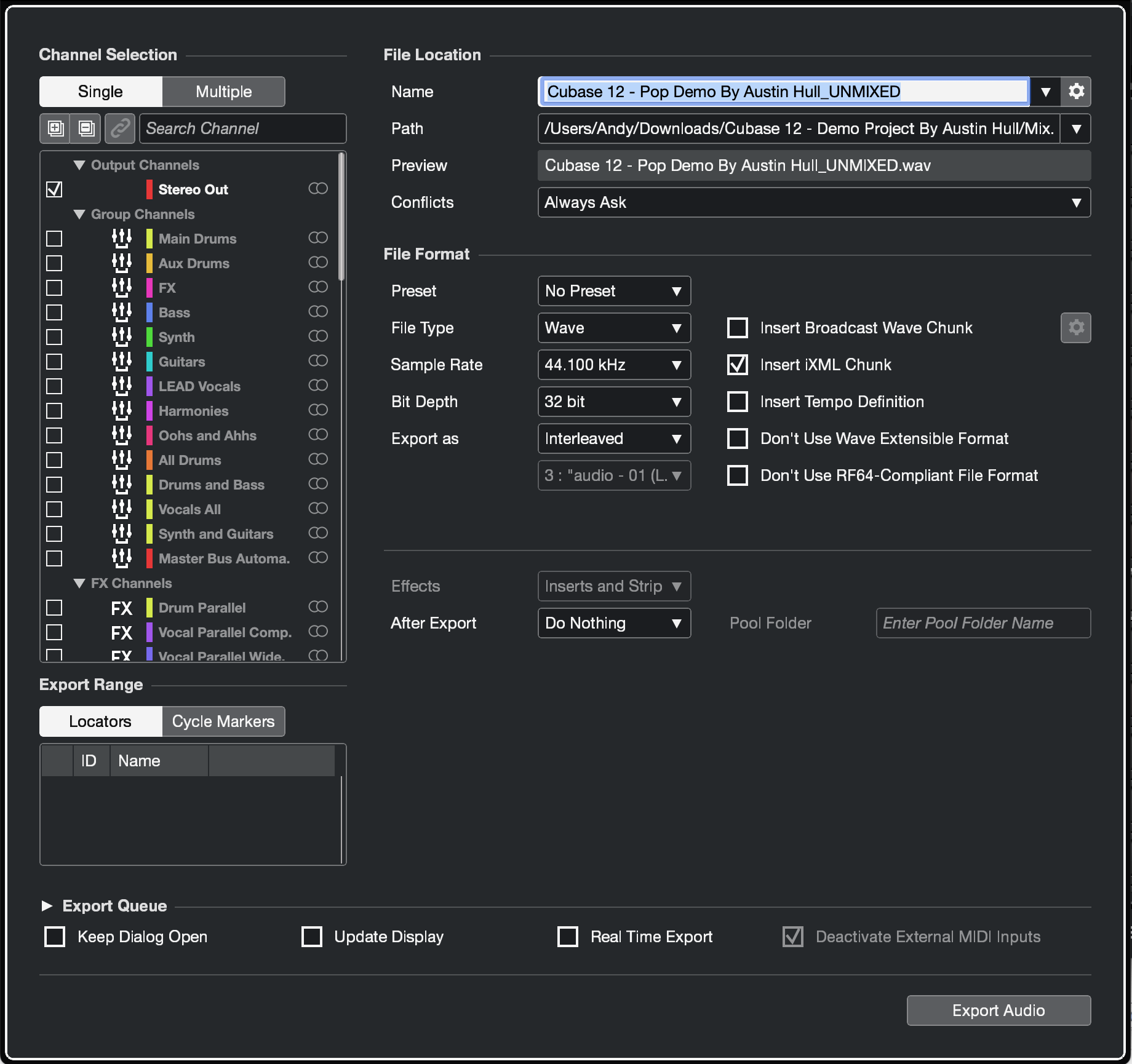
Further reading
MusicRadar further reading
Check out our guide to escaping the confines of loops and morphing your ideas into finished tracks
Next up, here's 9 straight-to-the-point ways to get better at finishing your tracks in your DAW more regularly
In that same vein, here's 11 productivity hacks to get more songs over the line
A few years back, we challenged ourselves to get an EP done in just 30 days, read the end result of said process here
And here are 10 things you absolutely MUST do to call your track finished
We discussed the mastering process being pivotal to getting your track read for release, here's our complete guide to mastering at home
Use Ableton Live? The mastering process is slightly different, as this article explores
How about priming your track particularly for streaming platforms - this article will help you
Andy has been writing about music production and technology for 30 years having started out on Music Technology magazine back in 1992. He has edited the magazines Future Music, Keyboard Review, MusicTech and Computer Music, which he helped launch back in 1998. He owns way too many synthesizers.
- Andy PriceMusic-Making Editor
